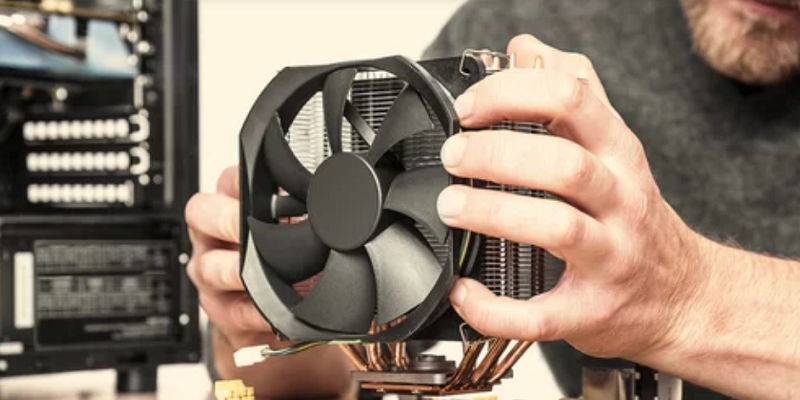In the world of technology, advancements happen at an astonishing pace. One such advancement is the development of Gen 5 SSDs, which offer lightning-fast speeds and improved performance. However, there’s a catch – these modern SSDs generate a significant amount of heat. To combat this issue, the market has seen a surge in the popularity of M.2 heat sinks. With a wide variety of choices available, it’s essential to understand the importance of cooling for these cutting-edge storage devices.
The Importance of Cooling M.2 Drives
Gone are the days when cooling M.2 drives was not a concern. The latest PCIe Gen 5 SSDs simply cannot sustain their peak performance without some form of cooling. The controller used in most PCIe 5 SSDs, like Phison’s E26, has a maximum temperature limit (TJ Max) of 125°C – significantly hotter than previous generation products. This means that without adequate cooling, it becomes challenging to maintain the desired performance levels, resulting in potential throttling and reduced lifespan.
Overview of the HR-10 Pro
Among the myriad of options available, the HR-10 Pro stands out as an impressive cooling solution. What sets it apart from its competitors is the inclusion of a high-speed, low-noise 30mm fan. This active cooling mechanism helps ensure effective heat dissipation, preventing the SSD from reaching critical temperatures that can hinder performance.
To evaluate the HR-10 Pro’s performance, we used the BeQuiet Silent Base 802 case as our test system. This setup allowed us to effectively analyze its cooling capabilities for various SSDs. Additionally, Thermalright, the manufacturer of the HR-10 Pro, goes the extra mile by providing a small screwdriver alongside the product, making installation hassle-free.
Performance Results
Our tests have demonstrated the HR-10 Pro’s exceptional cooling prowess. It emerged as one of the strongest heatsinks we have tested thus far, keeping the SSD up to 32°C cooler compared to basic SSD heatsinks. This substantial reduction in temperature ensures that the SSD maintains optimal performance levels, giving users a seamless and efficient storage experience.
Benefits of the HR-10 Pro
The significance of maintaining high speeds and lower temperatures for the SSD cannot be emphasized enough. By effectively cooling the Gen 5 SSD, the HR-10 Pro not only prolongs its lifespan but also enables it to function at its highest potential. This translates to improved system responsiveness and faster data transfers, making it the ideal solution for professionals and users with storage-intensive workloads.
Importance of Heat Sinks for Professionals and Intensive Workloads
With storage-intensive tasks becoming increasingly common in today’s professional landscape, the need for peak SSD performance is undeniable. Whether you’re a content creator working with high-resolution video files or a data analyst managing massive datasets, a heat sink is an indispensable component. It ensures that your SSD consistently operates at its full potential, reducing the risk of performance degradation and improving overall productivity.
The HR-10 Pro is undeniably one of the best NVMe m.2 heat sinks available on the market. Its exceptional cooling performance not only allows PCIe Gen 5 SSDs to maintain high speeds but also ensures they run at lower temperatures, ultimately increasing longevity and lifespan. Whether you’re a professional or an enthusiast, investing in a high-quality heat sink like the HR-10 Pro is crucial to unlock the full potential of modern SSDs. Don’t let heat hinder your storage performance; embrace the cooling power of the HR-10 Pro and elevate your storage experience to new heights.

